QuestionHelp! I have a rescue dog who is a staff crossed with something else. We have owned him since he was two years old and he is now around 15 years old. Since the winter has arrived this year as soon as it gets dark he will not stop whinning. He has water, been feed and let in the garden. Nothing in the house has changed at all. Do you know of anyway that we can stop him doing this as it is driving us all mad, he will just not settle at night time until my mother takes him to bed at 9pm, any earlier and he continues whinning. His sight is failing, as you probably expect, could this have something to do with it. Any ideas would be greatly appreciated.
Many Thanks
AnswerHi Sam,
Whining is a way of communicating that tells us a dog is upset, scared, or in pain. It is usually a behavioral response to being upset or feeling abandoned by his pack. However, if you have a dog that has never whined, but suddenly starts, you probably have a dog that is hurt or sick.
Some older dogs become restless at night, and stay awake, pacing through the house, or vocalize. With elderly dogs, whenever there is a change in behavior it's best to have them examined by a veterinarian. It could be his failing eye sight, or it could be something like joint pain, because that's something that could be aggravated by the cold. Not being able to settle down can be a sign of discomfort.
If your vet can't find anything wrong, you can ask about getting a prescription for mild sedative for your dog. This will help keep your dog calm and quiet at night. A few days might be all that's needed to break the habit (if a habit is the reason for the whining behavior). Be sure your dog is safely confined for the night, as a sedative will make him unsteady on his feet.
Another thing I should mention is something called Canine Cognitive Dysfunction, which is like a dog version of Alzheimer's disease. Something like 62% of dogs age 10 years and older will experience at least some of the following symptoms, which could indicate that he has Canine Cognitive Dysfunction (CCD):
Confusion or disorientation. The dog may get lost in his own back yard, or get trapped in corners or behind furniture.
Pacing and being awake all night, or a change in sleeping patterns.
Loss of house training abilities. A previously housetrained dog may not remember and may urinate or defecate where he normally would not.
Deceased activity level.
Increased vocalizing.
Decreased attentiveness or staring into space.
Not recognizing friends or family members.
A dog need not have all of these symptoms to have CCD. When other factors are ruled out (if decreased activity is due to an advancing arthritic condition, for instance, and your veterinarian has determined that your dog has CCD, a treatment for this disorder may be recommended. The new drug called Anipryl, although not a cure, has been shown to alleviate some of the symptoms of CCD. If the dog responds, he will need to be treated daily for the rest of his life.
Best of luck,
Patti

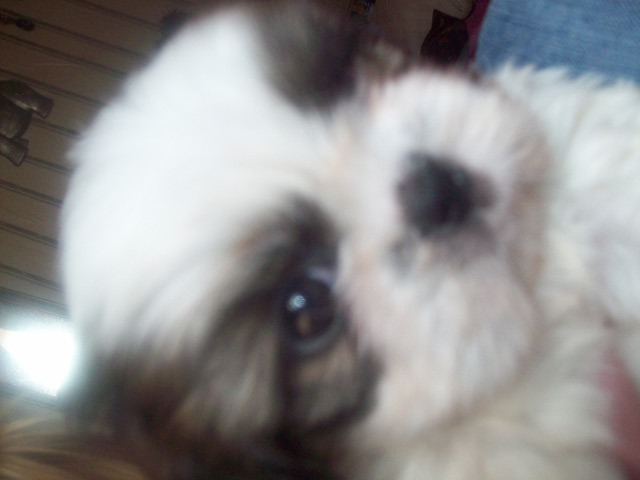 8wk old pup biting
Question
pebbles
hi i wonder if u can help me my
8wk old pup biting
Question
pebbles
hi i wonder if u can help me my
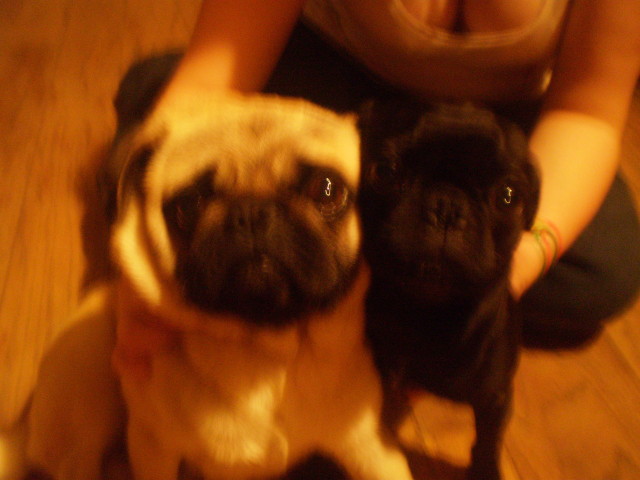 pugs
Question
micah and lacy
my male and female are the same
pugs
Question
micah and lacy
my male and female are the same
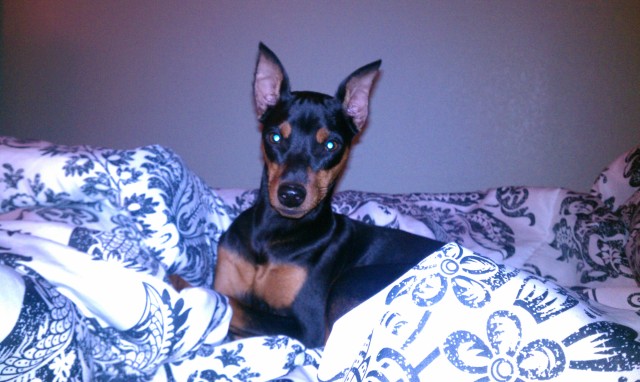 My miniature pinscher :)
Question
Chanel
I had a miniature pinscher of 8
My miniature pinscher :)
Question
Chanel
I had a miniature pinscher of 8
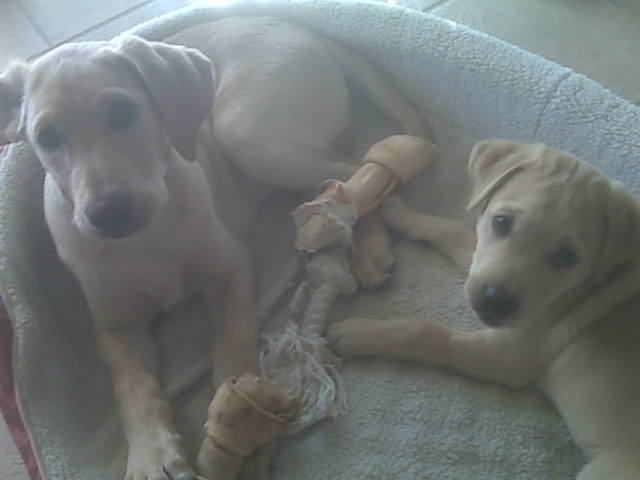 2 puppies one lab the other lab/shepherd mix
Question
Bailey ( female lab) a
I have a 3 1/2 month ol
2 puppies one lab the other lab/shepherd mix
Question
Bailey ( female lab) a
I have a 3 1/2 month ol
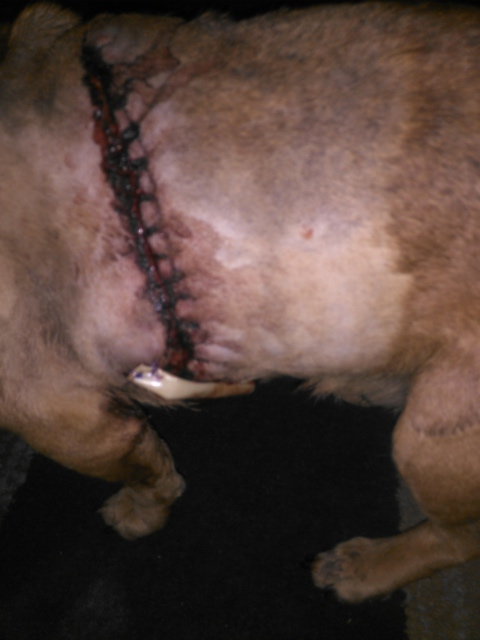 tumor on my dog
Question
stitched up second tim tumor
My d
tumor on my dog
Question
stitched up second tim tumor
My d